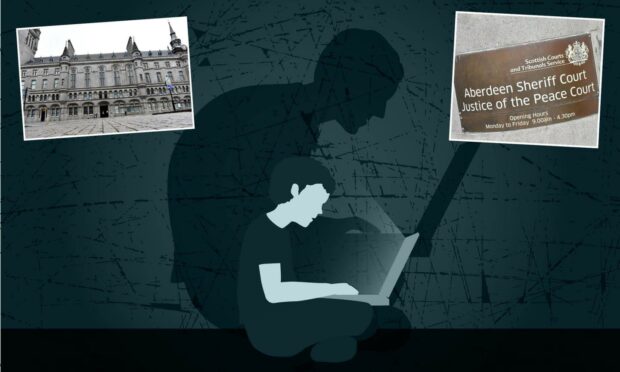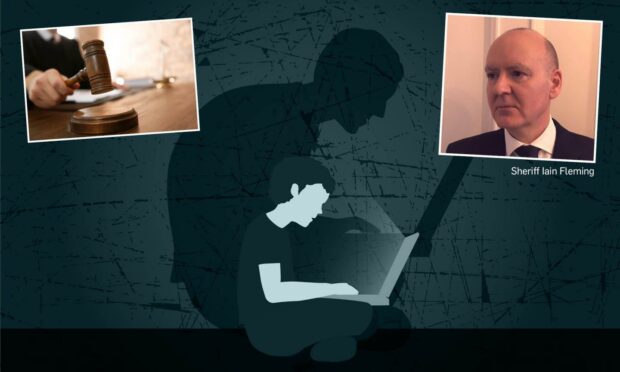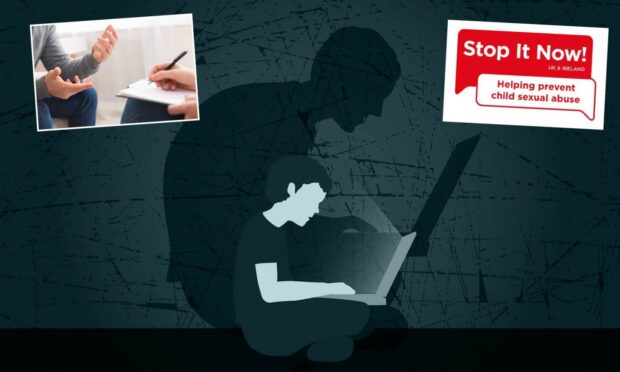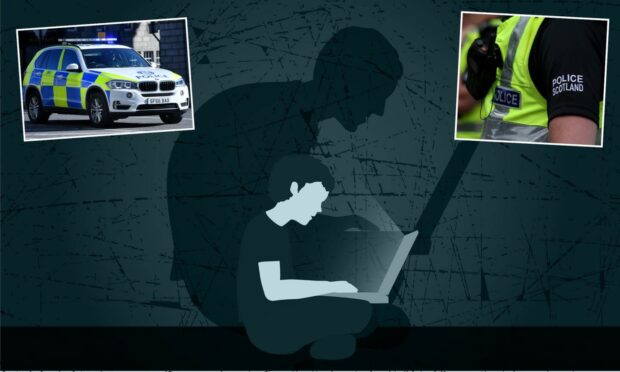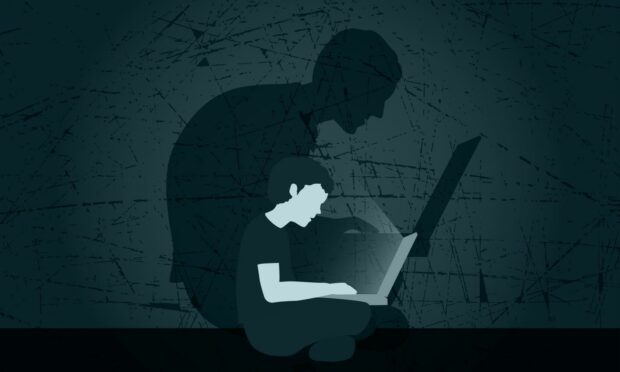Criminal lawyers have accused some online paedophile hunters of being “motivated by violence and blackmail” and questioned whether they “get a kick” out of what they do.
Online groups of paedophile hunters are a growing phenomenon, setting up fake social media profiles pretending to be young children and waiting for perverts to contact them with a sexual motive.
Criminal solicitors in Aberdeen, who have represented those caught by the groups in court, question their motives.
Paul Barnett, a partner with George Mathers and Co, said: “Clearly the grooming of children online has become an extensive and serious issue which our society needs to address urgently.
“In an ideal world this would be done by a well-trained and resourced police force but it seems that police resources have fallen behind the increase in the problem and this has no doubt given rise to an increased prevalence of civilian-run groups.
‘People wrongly identified as paedophiles’
“As far as I can see, most of the groups are well-intended, but some are not so and are motivated by violence, blackmail and extortion.”
Mr Barnett also said some groups do not fully understand the legal processes and have even wrongly identified people as paedophiles in the past.
He said: “We also very often see groups who are not well versed in what would and wouldn’t be admissible evidence, so the risk is that you get messy cases which fail as prosecutions or aren’t prosecuted at all.
“Maybe even worse than that are the instances of people who are wrongly identified as paedophiles by groups quick to ‘out’ people on social media, who in fact turn out to be innocent.
“For example, if the real paedophile has used a profile picture that doesn’t belong to them.
“In those cases, the damage done to people’s lives can be irreparable.
“Hopefully more resources will be made available to the police to target this problem soon.”
Police Scotland has vowed to continue to investigate child abuse as an “absolute priority”.
Meanwhile, lawyer Mike Monro, of Mackie and Dewar, said he agreed with the prosecution of those caught by paedophile hunters.
He said: “There’s obviously two views as to whether the person would have committed a crime if he hadn’t been, in effect, set up by a vigilante.
“The accused has allowed himself to become so involved, he, therefore, is a willing participant in it, and he genuinely believes he is contacting a child.
‘Is the vigilante getting a kick out of it?’
“My view is he has deliberately gone out of his way to make such contact in the first place, so therefore yes, he should be properly prosecuted.
“With regard to sentencing, that is a difficult matter.
“Should they be sentenced in the same way as if the accused has made specific contact with a child, or should they get a lesser sentence because no actual child was involved? That’s a difficulty for the sentencer to work out, to be perfectly honest.
“If it’s a vigilante group, no actual harm has been caused, but that’s not what was in the thinking when he allowed himself to be involved in it.”
Mr Monro also raised the question of what motivates groups to spend their free time posing as children online and tracking down predators.
He said: “Obviously the vigilante, one assumes, is simply doing this in order to expose the person who is contacting them, and dare one ask the devil’s advocate question, is the vigilante getting a kick out of it?
“Is the vigilante solely doing this in order to rid society of people who try and contact children on the internet, or is there a deeper side to it, that the vigilante is getting some kind of kick out of doing this?”
‘If they have the evidence, just hand it over to the police’
Another solicitor, Alex Burn, of Burn and McGregor, said he had had almost half a dozen clients in the past who had been targeted by paedophile hunter groups, and called for it to be left to the police.
He said: “Justice is best served by qualified law enforcement officers carrying out activities if they wish to ensnare these types of individuals participating in this type of activity.
“I don’t believe that it’s great when we have ordinary members of the public becoming amateur detectives.”
Mr Burn also criticised the practice of groups confronting a person and streaming the footage live on social media.
He said: “I don’t see, even if they’ve got the evidence, why they find it necessary to turn up at the individual’s door to confront them. If they have the evidence, just hand it over to the police.”
